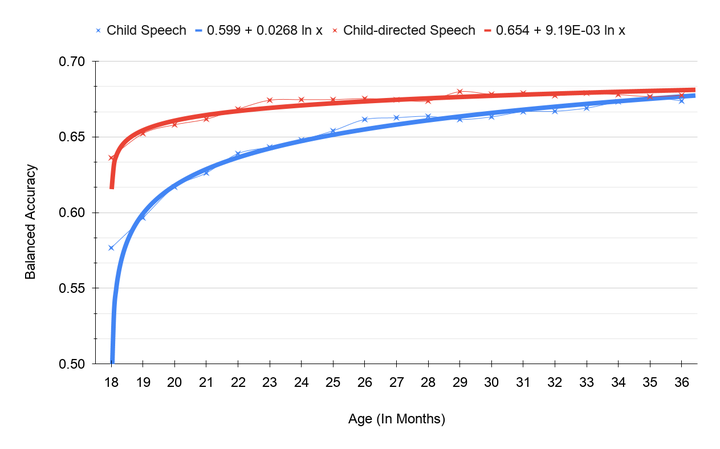Using Diachronic Distributed Word Representations as Models of Lexical Development in Children

Abstract
Recent work has shown that distributed word representations can encode abstract semantic and syntactic information from child-directed speech. In this paper, we use diachronic distributed word representations to perform temporal modeling and analysis of lexical development in children. Unlike all previous work, we use temporally sliced speech corpus to learn distributed word representations of child and child-directed speech. Through our modeling experiments, we demonstrate the dynamics of growing lexical knowledge in children over time, as compared against a saturated level of lexical knowledge in child-directed adult speech. We also fit linear mixed-effects models with the rate of semantic change in the diachronic representations and word frequencies. This allows us to inspect the role of word frequencies towards lexical development in children. Further, we perform a qualitative analysis of the diachronic representations from our model, which reveals the categorization and word associations in the mental lexicon of children.